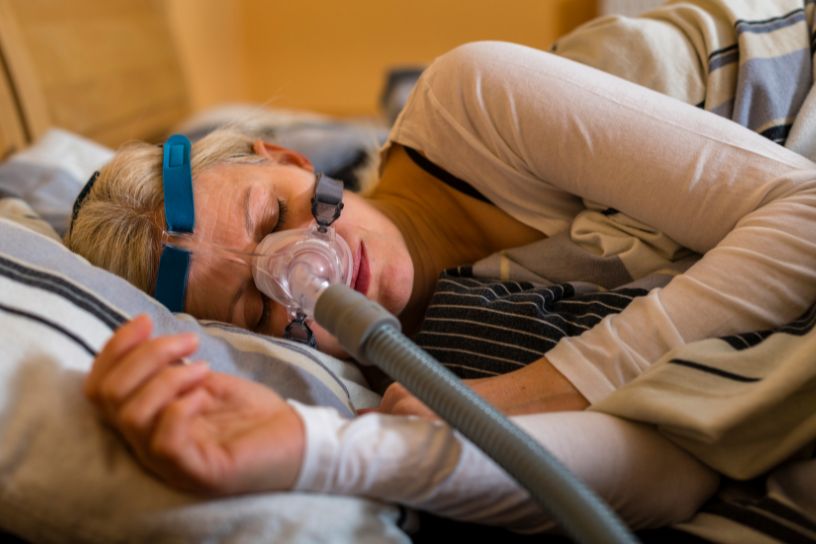Sleep Apnea specialist in Ghatkopar,Mumbai
Obstructive Sleep Apnea is a sleep disorder characterized by repeated interruptions in breathing during sleep. These pauses, known as apneas, occur when the muscles in the throat relax excessively, causing a temporary blockage in the airway. OSA can lead to fragmented sleep and potential health complications if left untreated.
Symptoms of Obstructive Sleep Apnea
The symptoms of obstructive sleep apnea can vary from person to person but often include:
- Loud snoring
- Gasping or choking during sleep
- Excessive daytime sleepiness
- Morning headaches
- Difficulty concentrating
- Irritability or mood changes
- Decreased libido
It’s important to note that not everyone with sleep apnea experiences noticeable symptoms, and the condition may go undiagnosed for years.
Health Risks of Untreated Sleep Apnea
Untreated obstructive sleep apnea can increase the risk of several serious health conditions, including:
- High blood pressure
- Heart disease
- Stroke
- Type 2 diabetes
- Depression
- Memory problems
- Weight gain and obesity
In addition to these physical health risks, sleep apnea can also take a toll on mental health and overall well-being, affecting relationships, work performance, and daily functioning.

Comprehensive OSA Diagnosis
Comprehensive OSA Evaluation
Dr. Kumar Doshi conducts a comprehensive diagnostic evaluation to accurately diagnose obstructive sleep apnea and develop personalized treatment plans tailored to each patient’s needs. The diagnostic process may include:
- Medical History: Dr. Doshi begins by taking a detailed medical history, including information about symptoms, sleep patterns, medical conditions, medications, and lifestyle factors that may contribute to sleep apnea.
- Physical Examination: A thorough physical examination may be performed to assess the patient’s overall health, including measurements of neck circumference, evaluation of facial and airway anatomy, and assessment of risk factors for sleep apnea.
- Sleep Study (Polysomnography): Polysomnography is the gold standard diagnostic test for sleep apnea. This overnight test monitors various physiological parameters during sleep, including breathing patterns, oxygen levels, heart rate, and brain activity. It helps to identify the presence and severity of sleep apnea and other sleep-related disorders.
- Home Sleep Apnea Test (HSAT): In some cases, Dr. Doshi may recommend a home sleep apnea test as a convenient and cost-effective alternative to polysomnography. This portable device records breathing patterns and oxygen levels while the patient sleeps in the comfort of their own home.
- Additional Testing: Depending on the individual patient’s needs and clinical presentation, additional tests such as pulmonary function tests, imaging studies, or blood tests may be ordered to evaluate underlying medical conditions or assess cardiovascular risk factors associated with sleep apnea.
Tailored Treatment Plans
Recognizing that each patient is unique, Dr. Doshi develops personalized treatment plans for individuals dealing with OSA. These plans may include a combination of lifestyle modifications, continuous positive airway pressure (CPAP) therapy, positional therapy, and, if necessary, surgical interventions.
Patient-Centered Care
Dr. Kumar Doshi prioritizes open communication and collaboration with patients. He takes the time to educate individuals about their condition, empowering them to actively participate in their treatment journey. By addressing concerns and incorporating patient preferences, he ensures a holistic and effective approach to managing Obstructive Sleep Apnea.
If you suspect you may be experiencing symptoms of Obstructive Sleep Apnea or have received a diagnosis, Dr. Kumar Doshi is here to guide you. Schedule a consultation to discuss your sleep concerns, explore treatment options, and embark on a path to improved sleep quality and overall well-being.
Note: This information is for educational purposes and should not be considered medical advice. Consult with a qualified healthcare professional for proper diagnosis and treatment.
